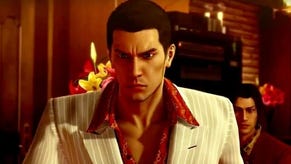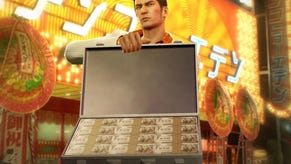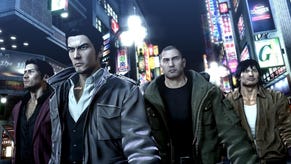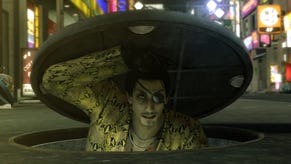Yakuza Kiwami review
Majima overdrive.
Two Yakuza games within eight months? Maybe 2017 isn't so bad after all. Kiwami isn't a new game, however, but a remake - a sweeping visual overhaul of the 2005 original, with a number of systemic and narrative tweaks besides, bringing it more in line with this year's 80s-set prequel Yakuza 0. But while Zero explored the lavish excesses of Japan's bubble economy, it's Kiwami that suggests you can have too much of a good thing: in many ways the remake's greatest asset might also be its biggest problem.
It's a change that makes a lot of sense at first. Goro Majima has always one of the series' most memorable characters, and his elevation to a starring role alongside series stalwart Kazuma Kiryu in Zero was long overdue. He rather stole the show from his popular rival, in fact, and so it's no surprise that Sega has decided his cameo in the original game should be significantly expanded.
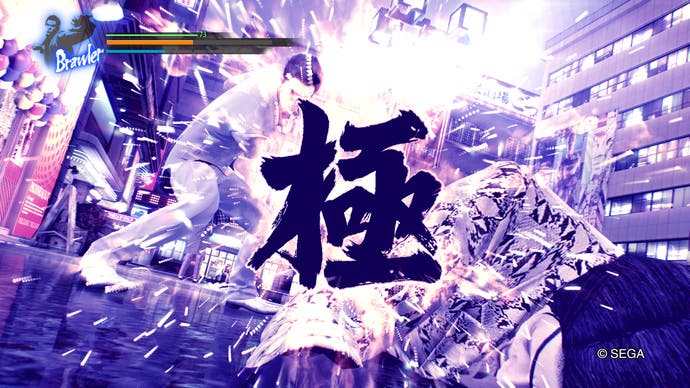
This manifests in the form of the Majima Everywhere system, which sees him strolling around Kamurocho, constantly spoiling for a fight - specifically with Kiryu. Majima typically frames it as if he's doing Kiryu a favour: the latter's ten-year stretch in prison during the game's opening act has left him a little rusty, and these scraps are designed to help him get back up to speed. Kiryu's three fighting styles from Zero - the dash-heavy Rush, the slow but powerful Beast and the more balanced Brawler - can be developed by spending XP. The fourth, Dragon of Dojima, can only reach its full potential if you keep facing this crackpot with the eyepatch and the snakeskin jacket.
In some ways, it's an inspired addition, lending an extra frisson to the moments you're pounding those rain-slicked streets because you're never quite sure when and where he's going to pop up. And since Majima's a capable opponent, these are fun fights that force you to engage more fully with the combat mechanics in ways that random battles against groups of regular goons rarely do - in fact, sometimes in the middle of smacking down a band of thugs, Majima will join the party. As such, you can't get complacent unless you're making regular trips to Kotobuki Pharmacy to stock up on some restorative Staminan Royales.
Better still are a handful of bespoke encounters that see him set up outlandish excuses to fight: at various points you'll find him hiding underneath a giant traffic cone, dressing up as a hostess, or faking a zombie outbreak. The undead extras from Zero's Miracle Johnson sidequest show up as extras in Majima's fanciful conceit, and it's not the only moment of thrift: you'll see Majima mimicking Johnson's spins and poses, and he even borrows the dubious dance moves of the prequel's resident perv, Mr. Libido.
Since remakes are rarely afforded the budget or development time of brand new games, that's perhaps understandable. But fighting Majima so frequently offers an uncomfortable reminder of Zero in that you'll probably find yourself missing the chance to play as him instead - particularly when he launches into an extended breakdancing combo. And eventually, his interruptions start to lose their appeal: a bruising and brilliant late-game encounter was spoiled slightly by the fact that my next two fights both involved Majima, as I mopped up a couple of side missions. It's the equivalent of a scene-stealing character actor whose supporting role is elevated in the edit, and it's not always to the game's benefit.
Majima's presence also serves to undercut the main thrust of the story, which is centred on Kiryu's former ally Akira Nishikiyama - or Nishiki for short. Elevated to a position within the Tojo Clan he's barely earned, Nishiki spends much of the game questioning his status, his concern for his hospitalised sister prompting a desperate grab for the vast sum of money he's assured will save her life. Kiryu's reappearance, meanwhile, awakens a latent envy of his old friend: fired by jealousy, shame and a simmering rage that's constantly threatening to boil over, Nishiki is steadily nudged down a path that puts him at odds with those he once loved. It's a tragic tale that's all the more affecting for the time it takes to establish character and motive, expanding on the original's plot at a crucial point that makes his turn to the dark side all the more convincing. George Lucas, take note.
Anyone with even a passing awareness of the series will know this is headed for a climactic confrontation, and when it does it's a brawl for the ages. Yakuza's always been particularly good at contextualising its big fights, and the improved presentation of this remake heightens the drama of an extended bout that will carry extra emotional weight for those who remember Zero's scene-setting of the pair's relationship. Yet it would, you sense, have even more impact if Kiwami hadn't been quite so fixated on Majima.
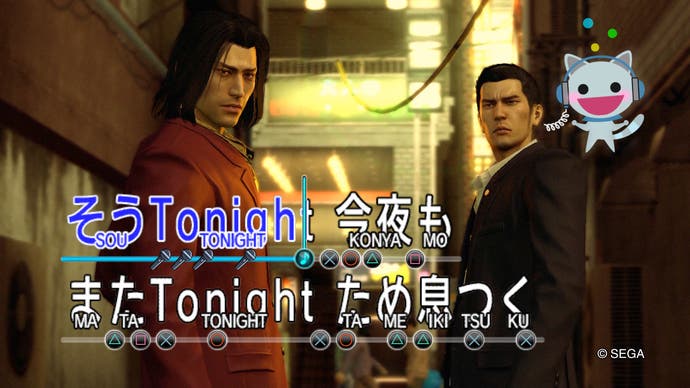
Away from the central plot, there's the usual litany of optional quests, as ever ranging from the silly to the sentimental, but another strong localisation makes even the perfunctory asides worth the effort (a mission called 'Crisis on the crapper', involving a man running out of paper in a public toilet being the perfect case in point). Elsewhere, Zero's catfight minigame is repurposed as a card-based arcade game, where large-bosomed women in flimsy outfits fight dressed as insects. It's the one eye-rolling moment in a game that's otherwise less grubby than your average Yakuza, though even here the dialogue finds wit among the grot. As Majima teases Kiryu about the titillating art on the cards, Kiryu snaps back, insisting it's a wholesome, educational game for kids. The script even pokes fun at the random nature of the combat: "I thought it was just rock-paper-scissors BS!" Majima exclaims (which, well, it is). There's nothing equivalent to Zero's real-estate or hostess-management activities, though given how time-consuming both were, you may feel that's a net positive.
Coming so soon after Zero, it's perhaps inevitable that Kiwami feels like a slight downgrade, even if, all things considered, it's superior to the original. Those who only discovered the series for the first time this year should find the chance to catch up with Kiryu and Kamurocho hard to pass up. As for Yakuza veterans, it's a fascinating comparison piece, not least for the opportunity to experience the story in its native language. As good as Mark Hamill was as Majima in the western version of the PS2 original - a particularly fitting piece of casting, since he does feel like the anarchic, garrulous Joker to Kiryu's stoic, taciturn Batman - a game so steeped in Japanese culture definitely feels better subbed than dubbed.
It's that culture, of course, that makes a return visit to the bright lights of Tokyo's wildest fictional pleasure district so appealing. Even with two games in eight months, there's still nothing else quite like Yakuza. And if Kiwami is the second of the two in every sense, it should keep that itch scratched between now and Yakuza 6's arrival in March.
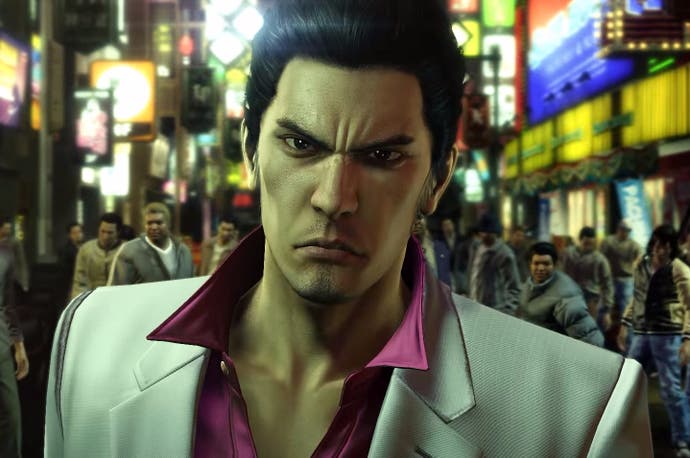


.jpg?width=291&height=164&fit=crop&quality=80&format=jpg&auto=webp)
